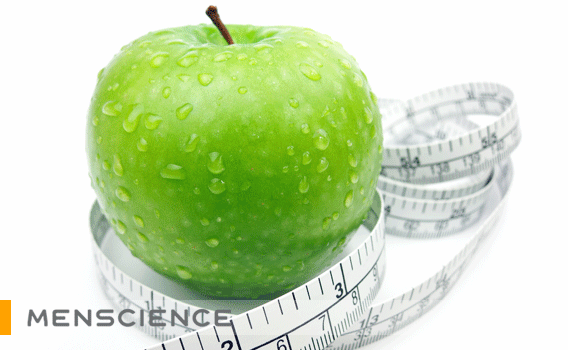You asked for it, so here it is — the hard truth about men’s nutritional needs in 10 simple bullet points. The truth might not be always pleasant (I don’t think we’ll ever get used to broccoli), but it IS the truth and your body will be better off. So let’s get started:
1. Reduce your intake of saturated fats. Excessive consumption of saturated fat is a risk factor for heart disease, according to most U.S. and International experts. So mini-size that 24-oz. rib eye — saturated fats can be found in fatty meats, cheeses and other dairy products. Choose grass-fed beef; it’s leaner and contains CLA, which can help you build muscle and burn more fat.
2. Eliminate trans fats. This is another bad fat that can wreak havoc on your heart. The primary risk associated with trans fats is an elevated risk of heart disease. Be on the lookout for shortenings as well as fried foods like French fries, which are loaded with trans fats. Check out “Men’s Nutrition: What to Eat + Avoid” for more tips on what foods to eat and avoid.
3. Eat more nuts. These are high in monounsaturated fats, which are actually good for you. Nuts like walnuts and almonds are also high in fiber and antioxidants, the latter of which can improve your skin’s appearance. Can’t stand nuts? Consider a men’s antioxidant supplement for an antioxidant boost.
4. Reduce your intake of charred meats. Consumption of meats cooked at high temperatures such as grilling or barbecuing can form carcinogens, which may lead to cancer. Try turning down the heat or cutting off burned portions when done cooking. If you need to have a protein fix, consider taking a men’s whey protein shake.
5. Eat more vegetables. Fries don’t count (see no. 2) and neither does the occasional head of broccoli. Rule of thumb: eat a rainbow of colors each day. Broccoli, carrots and corn are packed with skin-friendly antioxidants. Shoot for at least 3 servings of veggies a day.
6. Increase your omega-3 intake. Fish like salmon and tuna contain omega-3 fatty acids, which benefit your heart and brain. They’re also a good source of muscle-building protein. Not a fan of fish? Consider taking a men’s omega-3 supplement. Read “The Importance of Omega-3 Fish Oil Fatty Acids” for more info on these heart-healthy fats.
7. Eat less sugars and simple carbs. Unfortunately, sugars and simple carbohydrates are everywhere in the average American’s diet, and that’s why 1 in 3 Americans may develop diabetes. Cut down on bread, rice, crackers and sweets. Read “The Truth About Carbs” for more info on good carbs and bad carbs.
8. Eat more fiber. Regular consumption of fiber keeps you, well, regular. Fiber also fills you up, so that you’re less likely to overeat or feel hungry throughout the day. Fiber can also help fight cholesterol and because it takes longer to digest, it burns more calories in the process. Stick to 100% whole-wheat bread and grains, as well as brown rice and oatmeal.
9. Eat fewer calories: Portions are getting bigger – and so are our waistlines. Avoid larger-than-life portions and eat slowly; it takes a while for your body to realize that it’s full. Eating isn’t a race (unless you’re in a hot-dog eating contest). Check out “Fat-Burning Foods for Men” for a list of great foods to trim fat. And if you need help burning more calories, try the Thermonegic Formula Advanced Supplement.
10. Take a men’s multivitamin. No diet will get you all of the nutrients your body needs. That’s why a men’s multivitamin is essential to your nutrition plan. A men’s multivitamin like MenScience Daily Men’s Multivitamin provides an effective combination of vitamins, minerals and trace elements for your body. If you work out, you may also want to consider taking a men’s pre-workout supplement and post-workout supplement.









